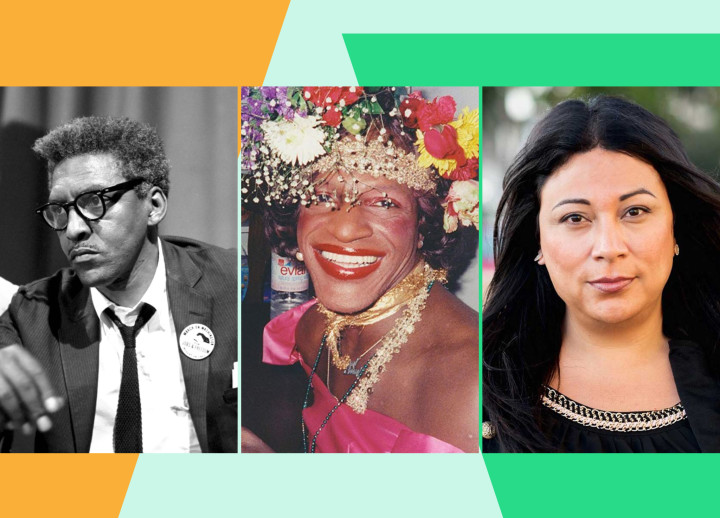Three Activists of Color who Shaped the LGBTQIA+ Movement Forever

Black, Latinx, and Native communities are no strangers to the fight for civil rights. Which is why it comes as no surprise that some of the most influential LGBTQIA+ activists have been people of color. Thanks to these and many other activists, LGBTQIA+ civil rights has been propelled and transformed. That’s why, in honor of Pride Month, Jopwell would like to celebrate three activists of color who challenged societal norms and changed the makeup of the LGBTQIA+ movement forever.
Bayard Rustin: The Foundation Setter
It is impossible to separate the relationship between diverse communities and the LGBTQIA+ movement, especially in the context of civil rights. There is arguably no better example of this intersection than with Bayard Rustin. As an openly gay Black civil rights activist, Rustin committed his life to equal rights for all. One of Rustin's most notable accomplishments was his instrumental role in organizing the 1963 March on Washington for Jobs and Freedom. He served as the chief organizer for the event, working closely with civil rights leaders such as Martin Luther King Jr.
Despite facing challenges and enduring discrimination due to his sexual orientation, Rustin never wavered in his dedication to justice and equality. In addition to his work in the civil rights movement, Rustin was involved in numerous other causes. He fought against racial segregation, advocated for labor rights, and actively opposed the Vietnam War. All of Rustin’s work, and the work of many other civil rights activists, ultimately laid the groundwork for the LGBTQIA+ civil rights movements. Bayard Rustin's legacy serves as a testament to the power of perseverance and the importance of intersectionality in the fight for equal rights and justice.
Marsha P. Johnson: The Revolutionist
In 1969, the police raided Stonewall Inn, a known gay establishment. This was the last straw in a long standing campaign of harassment and abuse against the queer community. The event ignited six days of riots and protests which were ultimately memorialized as the annual Gay Pride parades that are now celebrated around the world.
One major contributor to this uprising was Marsha P. Johnson, a black transgender woman who was known for her vibrant personality and fearless advocacy for the marginalized queer community. On the night of the Stonewall riots, she was at the forefront of the resistance, actively participating in the protests against police brutality and discrimination. Johnson's activism extended far beyond that historic event. She co-founded the Street Transvestite Action Revolutionaries (STAR), providing support and shelter for homeless transgender youth, many of whom were also people of color. Her advocacy work focused on the intersectionality of race, gender, and sexual orientation – all striving to create a more inclusive society.
Jennicet Gutiérrez: The Immigrant
Like many of us, LGBTQIA+ activists of color often have to face the complexities of their own intersecting identities. One Mexican-born activist, Jennicet Gutiérrez, has merged her identity as a Latinx and transgender individual. In this, she is best known for her advocacy on behalf of transgender and immigrant rights.
In her work, Gutiérrez, representing the organization Familia: Trans Queer Liberation Movement, calls attention to the struggles faced by transgender immigrant women, particularly those held in detention centers.
Since speaking out and challenging the Obama administration's policies in 2015, Gutiérrez continues to shed light on the mistreatment and abuse experienced by transgender immigrants in detention and the urgent need for systemic change. Her bold action brought national attention to the issues of transgender rights, immigration, and the intersectional experiences of marginalized communities.
The contributions of these three LGBTQIA+ civil rights activists have been transformative, shaping the course of the movement and leaving a lasting impact on their communities. Their unwavering dedication, resilience, and intersectional approach have paved the way for progress in the fight for LGBTQIA+ rights. As we honor their legacies, let us remember that the struggle for equality is ongoing, and their inspiring work must continue to guide us as we strive for a more inclusive and just society.


